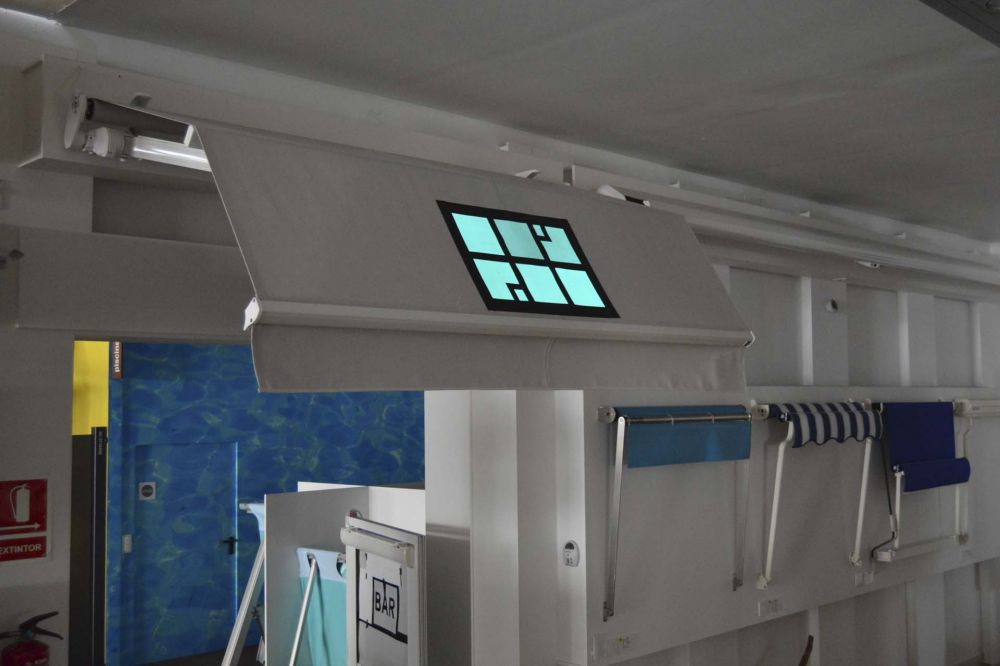
Research on flexible lighting devices by means of deposition
techniques
The ROLLING LIGHTS consortium project-Research in flexible lighting devices by means of roll-to-roll deposition techniques for textile architecture has the general objective to provide the field of textile architecture with new technologies to make flexible lighting devices, with features such as ambient lighting, visibility and marketing.
Applications such as marquees, awnings, umbrellas,
billboards and tents offer the potential to integrate an electroluminescent
function to earn market value from the point of view of marketing, advertising
and environmental lighting. The goal of the ROLLING LIGHTS project is to obtain
a fabric capable of emitting light and that maintains the inherent properties
of textiles (flexibility, softness, comfort, etc.). Currently, there is no
market where there is an electroluminescent fabric printed directly with EL
technology; therefore, it is a first in the world. Project website. This
project is funded by ACC1Ó and co-financed by the European Regional Development
Fund (ERDF) under the Operational Programme for Catalonia 2007-2013.
HEADQUARTERS
Av. de l'Exèrcit 35-37
25194 Lleida Spain (Headquarters)
Tel. +34 973 263 022
Fax +34 973 275 887
info@iasoglobal.com
Links of interest
At IASO we use our own and third-party cookies for analytical and advertising purposes. You can accept all cookies, reject them or configure your preferences, by clicking here where you can obtain more information.
Necessary cookies help make a web page usable by activating basic functions such as page navigation and access to secure areas of the web page. The website cannot function properly without these cookies.
Statistical cookies help web page owners understand how visitors interact with web pages by collecting and providing information anonymously.
Preference cookies allow the website to remember information that changes the way the page behaves or the way it looks, such as your preferred language or the region in which you are located.
Marketing cookies are used to track visitors on web pages. The intention is to show ads relevant and attractive to the individual user, and therefore more valuable to publishers and third-party advertisers.